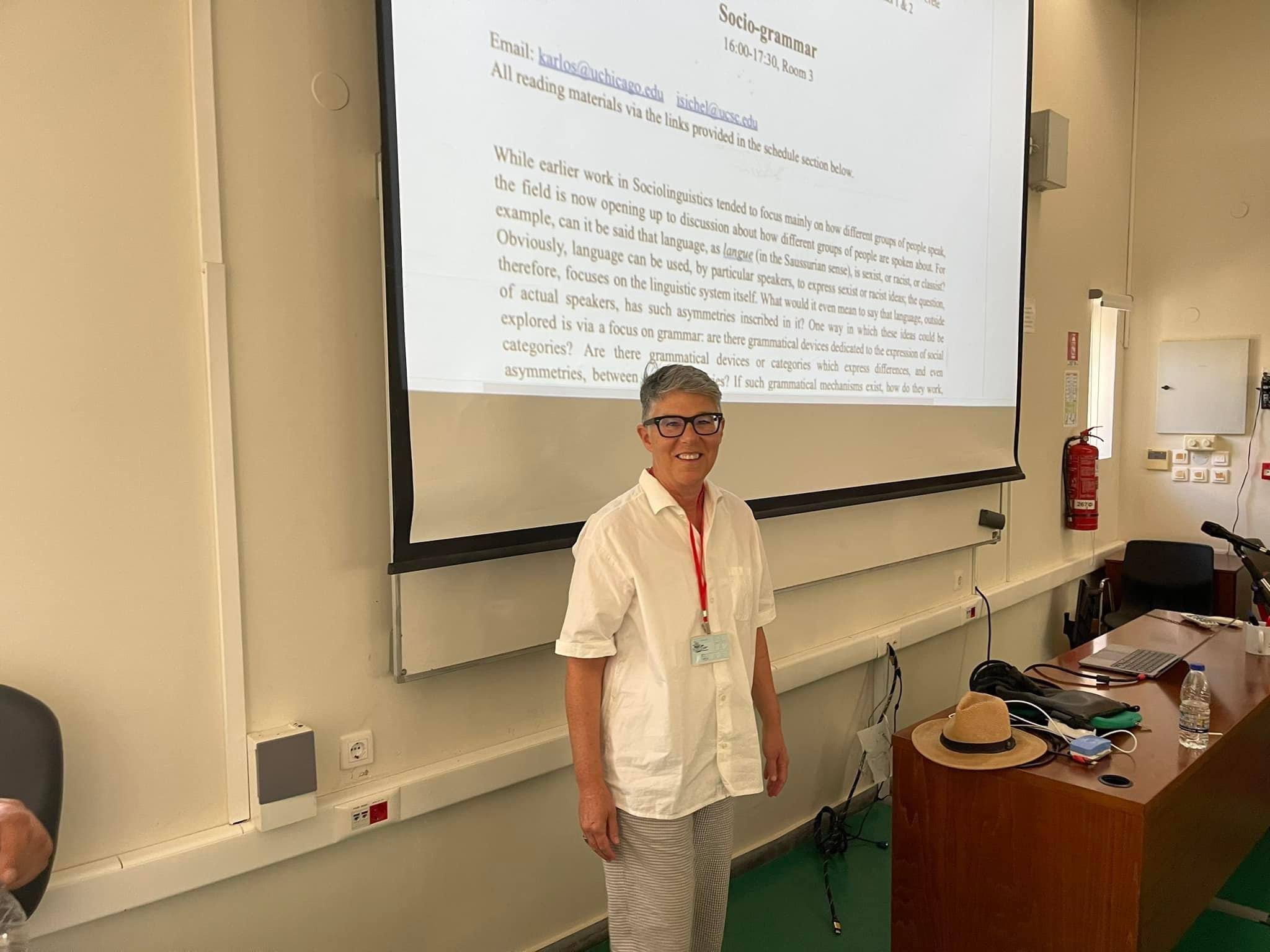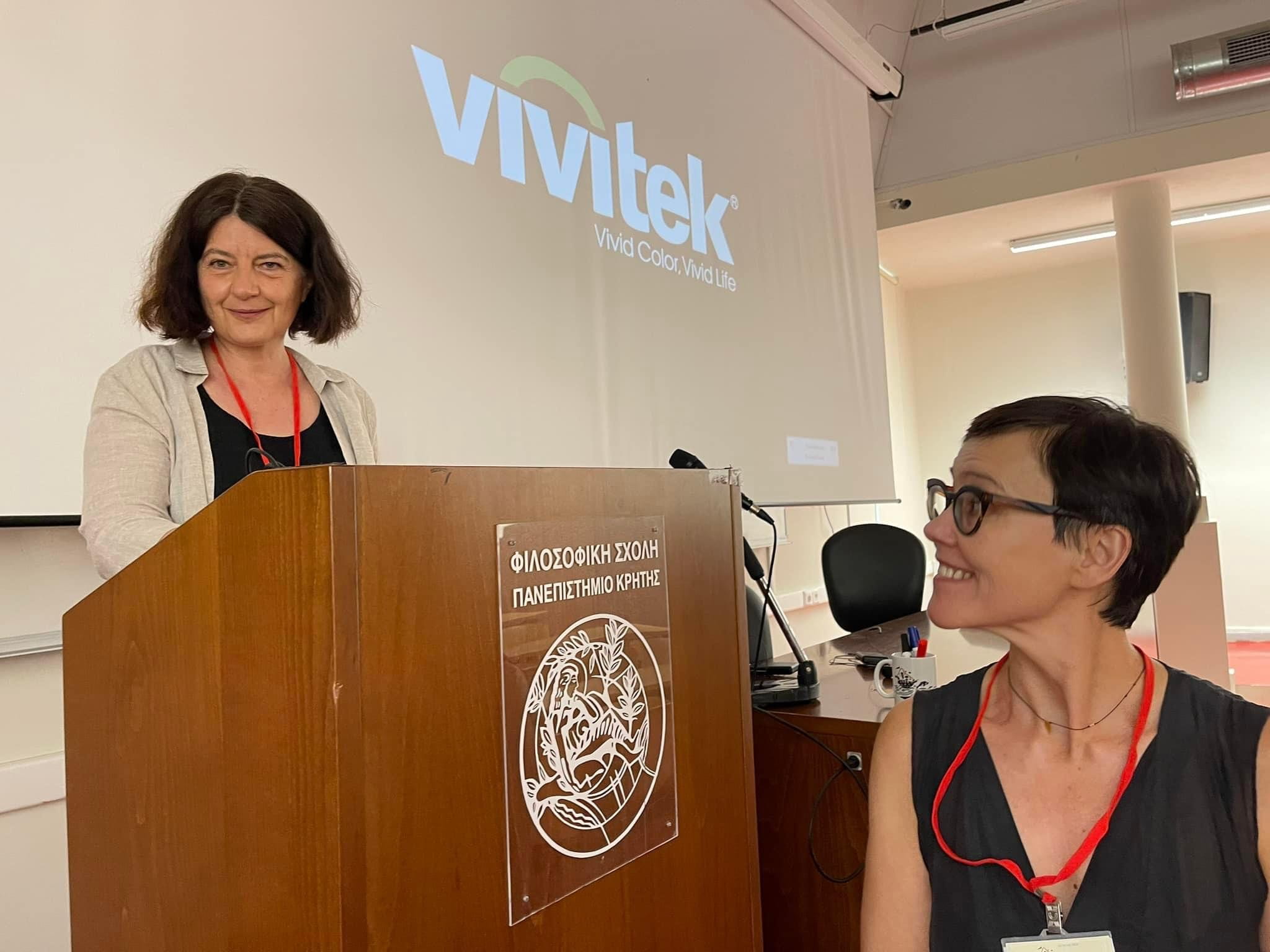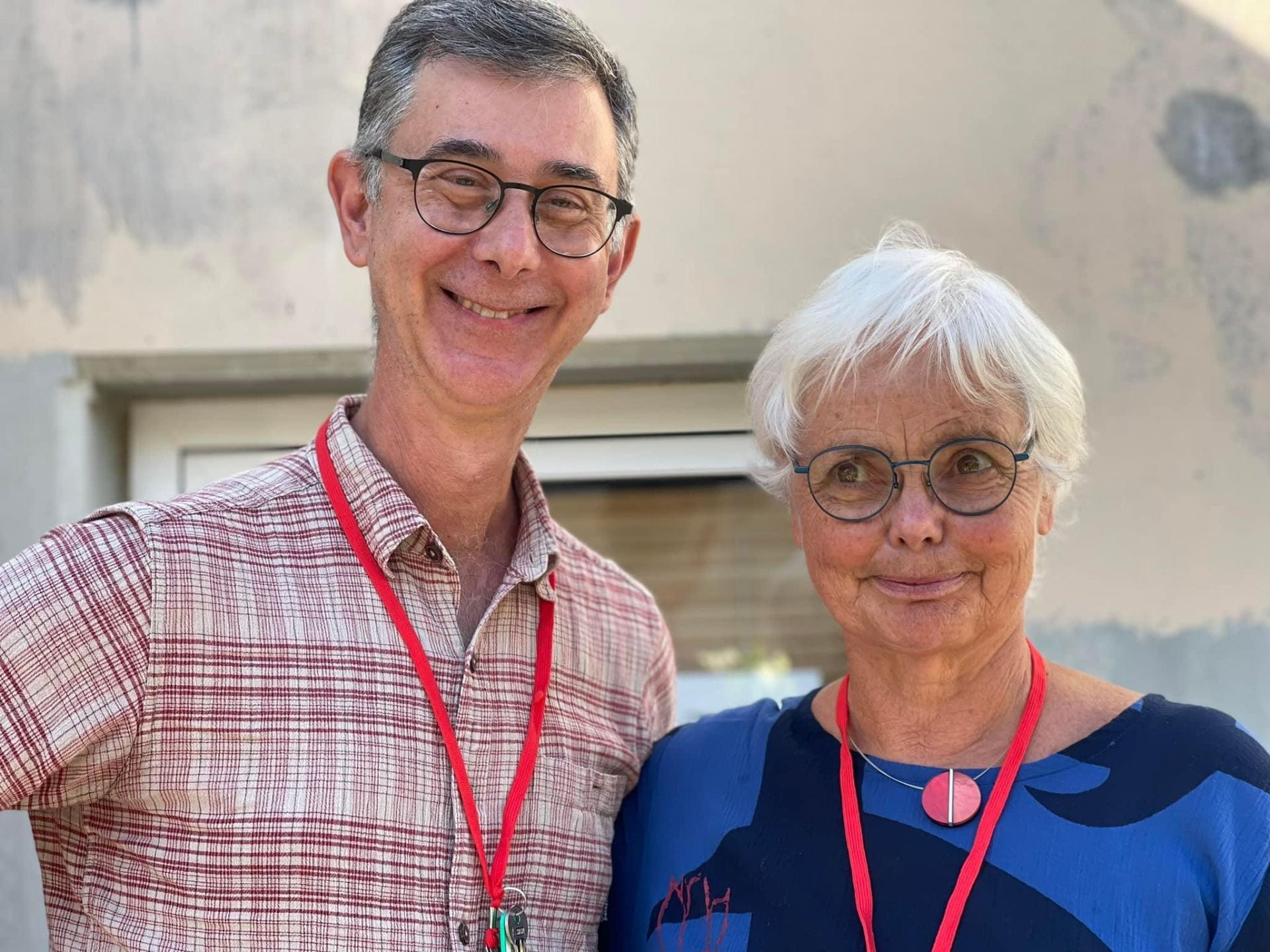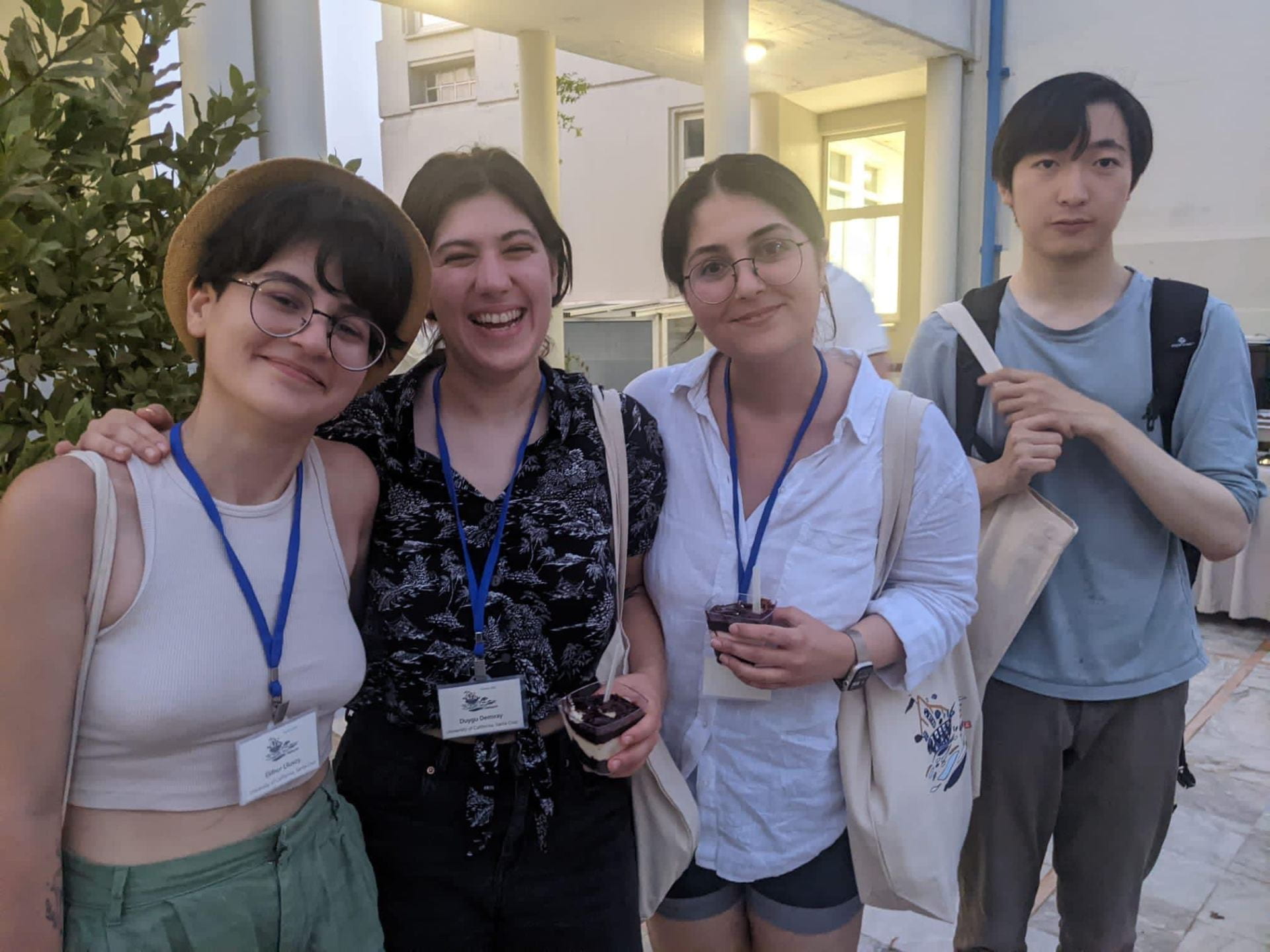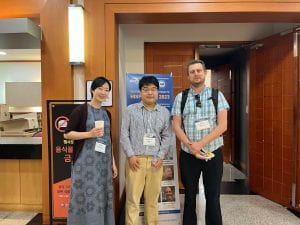Bennett and Padgett present at ICPhS 2023
In August, at the International Congress of Phonetic Sciences (ICPhS) in Prague, Ryan Bennett and Jaye Padgett presented a poster called “The timing of secondary dorsal articulations across syllable positions in Irish“. This is joint work with Grant McGuire, Jenny Bellik, and Máire Ní Chiosáin of University College Dublin.
Ryan Bennett had another talk at the same ICPhS called “Phonetic variability in the realization of glottalized stops in Uspanteko (Mayan)” (co-authored with Robert Henderson, UCSC Ph.D. 2012, now Associate Professor at U Arizona, and Meg Harvey, Brown University).
Ph.D. alumna Maho Morimoto (2020) was also present with her joint work with colleagues, one titled “Tongue contours for the Japanese moraic nasal by speakers of Standard Chinese“, and the other “Articulatory timing of the Japanese singleton and geminate /t/ produced by speakers of Standard Chinese“.
